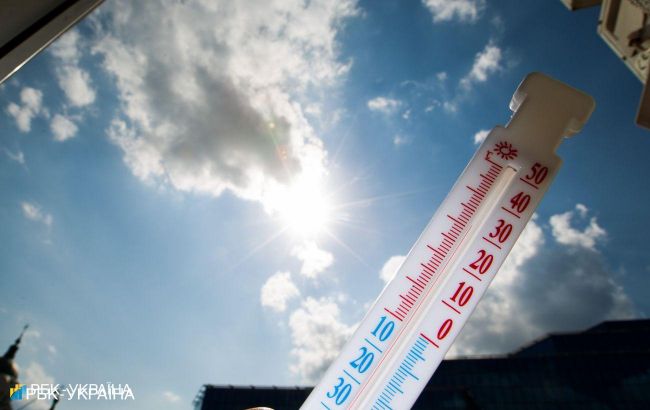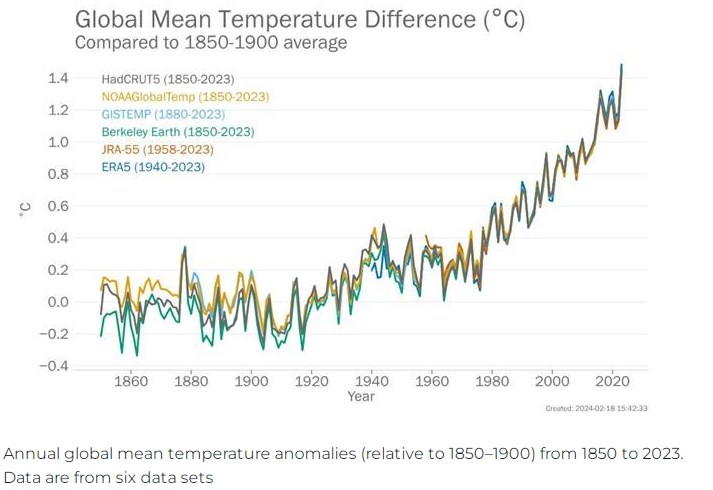Warmest 10 years in history of observations - UN
 Illustrative photo (Vitalii Nosach, RBC-Ukraine)
Illustrative photo (Vitalii Nosach, RBC-Ukraine)
The past decade has witnessed record-breaking temperatures across the globe since climate observations began. The year 2023 clinched the title of the warmest year on record, attributed to the El Niño phenomenon, according to the report from the United Nations World Meteorological Organization (WMO).
The Global mean surface temperature in 2023 was approximately 1.45 degrees Celsius higher than the average for the period from 1850 to 1900. 2023 marked the warmest year in the 174 years of recorded observations, surpassing previous records set in 2016 by 1.29 degrees and 2020 by 1.27 degrees.
The WMO report confirms that the global average temperature for the decade spanning 2014 to 2023 exceeded the pre-industrial average by 1.20 degrees Celsius. Monthly temperatures from June to December consistently broke records for their respective months on a global scale. Particularly noteworthy was September 2023, which significantly surpassed the previous global record for September by 0.46 to 0.54 degrees Celsius.

Reasons behind record heat in 2023
According to the WMO, the transition from La Niña to El Niño in mid-2023 contributed to a rapid temperature increase from 2022 to 2023.
Global sea surface temperatures (SSTs) reached record highs starting from April, with July, August, and September setting records by a significant margin. Exceptionally high temperatures were observed in the eastern North Atlantic, the Gulf of Mexico, the Caribbean Sea, the northern Pacific Ocean, and large portions of the Southern Ocean, where widespread warm anomalies prevailed.
In 2023, the global mean sea level reached a record high since satellite observations began in 1993, reflecting ongoing ocean warming (thermal expansion) and the melting of glaciers and ice sheets.
The rate of global mean sea level rise over the past decade (2014-2023) more than doubled compared to the first decade of satellite observations (1993-2002).
"Sirens are blaring across all major indicators... Some records aren’t just chart-topping, they’re chart-busting. And changes are speeding-up," said UN Secretary-General António Guterres.
Preliminary data suggests that the global reference glacier mass balance experienced the largest ice loss in history since observations began in 1950, due to extreme melting both in the western part of North America and Europe.
The extent of Antarctic sea ice reached its lowest in observational history: its maximum extent at the end of winter was 1 million square kilometers less than the previous record year, equivalent to the combined area of France and Germany.
2023 ranked as the second warmest year in Kyiv, Ukriaine after 2020, primarily due to the exceptionally warm second half of the year. The average temperature in the Ukrainian capital in 2023 was 10.8 degrees Celsius, which is 1.8 degrees above the climatological norm.

